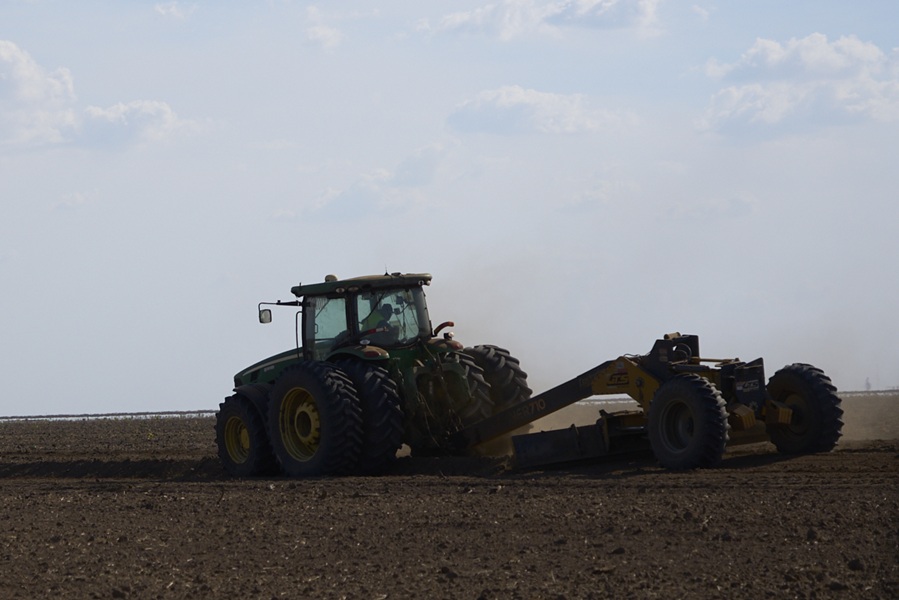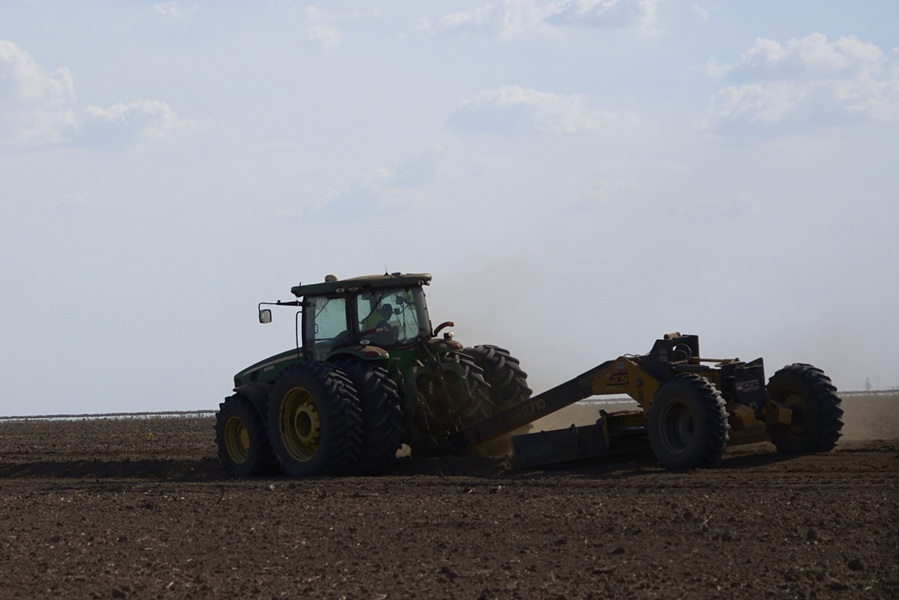AS A PUBLICLY TRADED COMPANY listed on the B3, SLC Agrícola had 44.1% of its shares in the hands of investors in September 2025. In addition to some of the world’s largest asset managers, such as BlackRock and Vanguard, the company has, in its shareholder history, major foreign pension funds such as the UN Staff Pension Fund (United Nations Joint Staff Pension Fund) and CalPERS (California Public Employees’ Retirement System), considered the largest public pension fund in the US.
These funds are mentioned in the shareholder list from SLC’s most recent General Assembly, held in April 2025. These shareholders have voting rights in the assembly, access to information about significant company transactions, and participation in profit distribution.
In August 2024, SLC informed its shareholders about leasing a 14,500-hectare area of Cosmos farm, owned by businessmen Ricardo Tombini and Eduardo Dall’Magro, for soy and cotton production. The area was annexed to the Parnaguá farm, operated by the company in Santa Filomena, in the Brazilian state of Piauí.
This investigation was conducted by Repórter Brasil, in partnership with O Joio e o Trigo and The Bureau of Investigative Journalism.
ASSINE NOSSA NEWSLETTER
An alert from MapBiomas and analysis from the Dutch organization AidEnvironment identified recent deforestation on the property. Additionally, Tombini and Dall’Magro are accused of land grabbing by residents of the traditional Melancias community and are targets of a legal action from Interpi (Institute of Land of Piauí), which is requesting the return of 2,800 hectares of the farm. Documents from Funai (Brazilian National Foundation for Indigenous Peoples) and Interpi also point to the property overlapping with the territory of the Akroá Gamella indigenous people.
When questioned, SLC Agrícola stated that the leased area within the property does not overlap with the farm’s perimeter where land conflicts occur, nor with the deforested area between 2024 and 2025. In its “Zero Deforestation Policy,” the company commits to not operating on properties with the suppression of native vegetation after August 2021. SLC stated that the case of Cosmos farm does not violate this policy because the leased areas exclude the recently deforested perimeter.
“It is important to highlight that the company maintains a transparent relationship with its shareholders, through frequent disclosures of Relevant Facts and Management Reports,” the company said. You can read the full response here.
In a phone conversation with the reporters, Ricardo Tombini, one of the owners of Fazenda Cosmos, emphasized that he obtained authorization for the deforestation carried out – a fact confirmed by the report. He rejected the land grabbing accusations and claimed that it is the Melancias community that is invading the farm’s perimeter. However, the businessman and his partner did not respond to specific questions sent to their lawyer via email.
Investments under scrutiny
“The company leasing land that is in conflict, about which there are ownership doubts, is totally irregular. This should not be receiving investments,” says Carlos Augusto Ramos, a forest engineer and mentor of Social-Environmental Credit at the Conexsus Institute.
“A company of this size should never do business with land under litigation. This is an easy fact to verify through land registry certificates and court processes. These investors could even take action against this company because they did not comply with the necessary compliance,” analyzes Ademiro Vian, former director of the Brazilian Federation of Banks (Febraban) and consultant in agribusiness finance.
According to Vian, investors need to verify the sustainable use of the funds. “Especially when they are institutional funds, which represent an individual or a collective,” he argues.
The UNJSPF (United Nations Joint Staff Pension Fund), formed by active and retired UN employees, had US$ 105.1 billion in assets under management in September 2025. It publishes sustainable investment policies aligned with the UN’s sustainable development goals, with a focus on Human Rights. In the 2023 report on topics mobilized by the fund with companies, a section specifically discusses indigenous peoples and the importance of respectful relationships between communities and business institutions.
When asked about its participation in SLC, the UNJSPF responded that it does not disclose information about specific investments. “Our investment approach is based on the conviction that, as global investors, we are in a privileged position to apply capital and generate concrete positive results,” said Robert van der Zee, interim representative of the UN Secretary-General for the investment of UNJSPF assets.
“The UN is an entity that has as a principle to respect the laws of countries. We have the Constitution and the Social Function of Land. The UN cannot throw resources at something that is not respecting these two basic items,” analyzes Ramos.
CalPERS, the largest public pension fund in the United States with US$ 556.2 billion in assets under management, represents California’s state and municipal employees and is also listed as a shareholder of SLC Agrícola in the latest General Assembly. In addition to publishing social and environmental policies, the fund participates in movements like Climate Action 100+, a group of investors created to pressure companies on global warming. The fund has a climate action plan worth US$ 100 billion by 2030 to reduce carbon intensity and finance climate solutions within its investments.
In the guidelines of its plan, CalPERS advocates for “respecting the human rights of people affected by its investment activities and seeks to ensure that investments do not flow to companies that violate such rights.” When asked, CalPERS responded that it “has nothing specific to comment on SLC,” but stated that it “works to gather relevant facts and seeks solutions when problems are identified.” Read the full response here.
SLC is also listed among the investments of CalSTRS (California State Teachers’ Retirement System), which describes itself as the largest public pension fund exclusively for educators in the world. Its ESG (Environmental, Social, and Governance) policy identifies as a risk investing in properties that violate the rights of communities’ land and territories.
When contacted by the reporters, the fund stated it had no specific information on SLC and emphasized that it is “committed to sustainable business practices that lead to economic growth and prosperity.” It added: “We monitor our investments, engage with companies, and collaborate with general partners to identify and address risks in our portfolio, as well as develop and implement action plans to mitigate them.”
Another investor in the company mentioned at SLC’s General Assembly is Legal & General, which publishes social and environmental policies and ESG guidelines for its investments. The fund sets exclusion criteria for companies that do not comply with its proposed guidelines, such as the UN Global Compact (UNGC), with specific references to indigenous communities, and maintains an agenda aligned with the Global Biodiversity Agreement. The investor did not respond to the reporters’ questions. The article will be updated in case of future responses.
‘Largest in the World’ are also on the list
The report on SLC’s shareholders also mentions some of the world’s largest asset managers, such as BlackRock, which reached US$ 13.46 trillion in assets in the third quarter of this year. The manager publishes social and environmental policies, but in January of this year, it left the Net Zero Asset Managers initiative (Nzami), in which it had committed to support the target of net-zero greenhouse gas emissions by 2050. In February, it reduced its participation in Climate Action 100+, a group of investors created to pressure companies on global warming.
Vanguard and JP Morgan were also listed as investors in the agricultural company. When asked, the two investment managers and BlackRock did not comment on their investments in SLC.
This article was supported by Brighter Green’s Animals and Biodiversity Reporting Fund.
Leia também


